If you have ever seen a bonsai tree you may notice that it holds quite a special feeling in the twisting branches and tiny leaves. While cultivating a bonsai tree requires horticultural and artistic abilities and is seen in Asia and across the globe as a refined art, there is also a sense of calm that you feel when seeing a bonsai tree. This is largely due to the tree’s ability to draw and share energy, or so say the ancient Japanese who practice the art of the bonsai. But what does the bonsai actually represent?
Generally, the bonsai represents good luck, love, hope, gratitude, and harmony. While each species of the tree holds its own special meaning, they are also all symbolized by spirituality as the work that goes into shaping and caring for the tree, or the artistry of cultivating a bonsai tree is considered incredibly sacred.
In this article, we are going to discuss the sacred symbolism of each variation of the bonsai, as well as a brief overview of its history and why it is considered so energetically charged. Of course, bonsai trees are beautiful and intricate, but let’s learn a little more about their spiritual offerings.
Why Is the Bonsai Tree Considered Sacred?
The grooming and caring for bonsai trees is considered peaceful, intentional, and sacred work, as are the trees themselves. The art of the bonsais can be dated back 2000 years in China and later was brought to Japan where it was integrated into the spiritual philosophy of Buddhism.
The tree was always considered special as they were not used for any purpose, such as lumber, but were instead solely used in sacred spaces because of their deep connection to the energy of both nature and people.
As we are about to learn, each of the types of bonsai trees represents not only an all-encompassing sacredness and spirituality but also a variety of different emotions and innate human feelings.
What Do the 10 Most Common Bonsai Trees Represent?
While there are up to 850 different varieties that can be classified as bonsai trees, there are fewer than 100 that are considered popular around the globe. Of those, there are even fewer varieties that are easily accessible and therefore are used in homes and gardens for their spiritually and physically healing purposes.
When deciding which bonsai tree is right for you, you certainly will want to know what they each represent and what energies they will most likely bring into your life.
Ficus
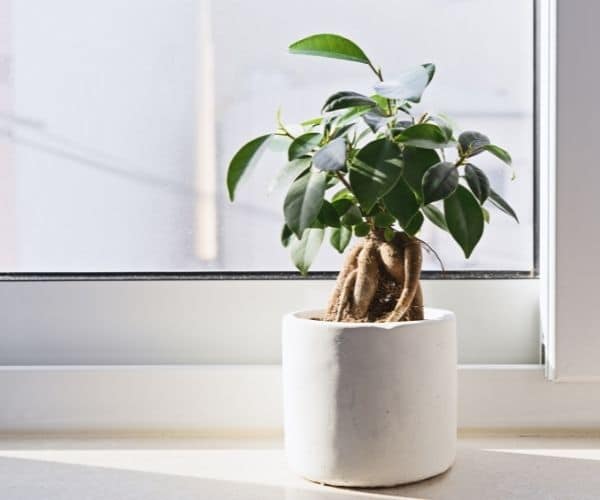
The ficus bonsai is widely known as the “cheerful tree” as it has the capability to enhance the general feelings of those around it.
It is also understood to bring new beginnings, abundance, and even harmony with nature. The simplicity of the ficus bonsai, though still intricate and beautiful, is representative of its ability to bring simplicity into your life.
The ficus is a wonderful beginner bonsai as it requires less upkeep than some of its other brothers or sisters. It is a beautiful and encouraging tree to keep in your home or garden.
Azalea
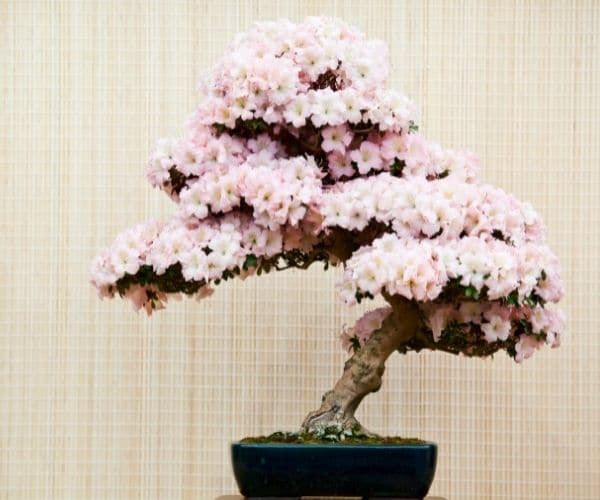
The pure representation of femininity and natural beauty, the Azalea bonsai produces majestic small pink flowers that simply emit the feeling of gentleness and vulnerability.
Azaleas are a special gift for a woman in your life whom you love deeply. It can be considered good luck for a new romance, as it also represents passion and abundance.
Chinese Elm
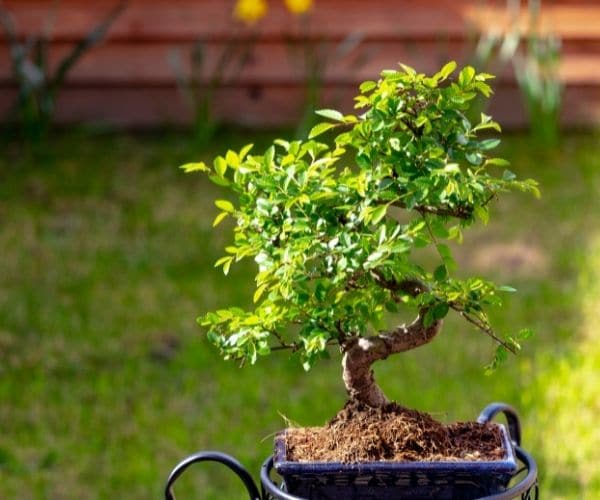
“The tree of harmony” otherwise known as the Chinese elm, is known to introduce calm and unification into the space it holds.
It is also understood to represent the intuition of the mind, as well as wisdom, clarity, and love. The love symbolized through the Chinese elm is a balanced and peaceful loving relationship and can be a delightful gift for loved ones with a new home or a new adventure on their horizon.
Cedar
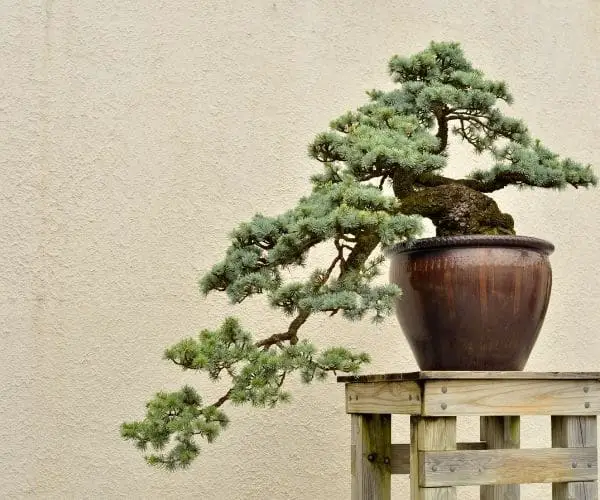
The cedar trees are quite special as they are known for their medicinal and healing properties. In fact, cedar is not only renowned in the Asian bonsai culture, but also within the ancient beliefs of the Native American peoples.
Both of these cultures identify the cedar as the tree of immortality and longevity due to its shape, reaching tall towards the heavens, and its resilience in nature. It also symbolizes strength and protection, and even generosity.
Jade
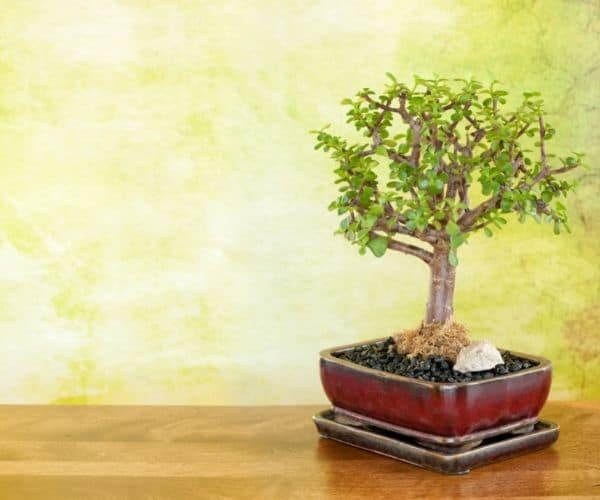
The bonsai trees have often been associated with the practice of feng shui, the movement of energy to harmonize our physical and spiritual lives, and in this tradition, the Jade tree is known for bringing good luck in financial endeavors, as well as in friendships.
It is often called the “money tree” or the “friendship tree” and is represented by wealth and prosperity, and is enjoyed by many as it is known to release positive energy.
The Jade bonsai tree is a wonderful addition to a new business; the feng shui practice recommends that you place the tree near the cash register to ensure financial success.
It is also very easy to maintain and prune if you are new to the artistry of the bonsai.
Cherry Blossom
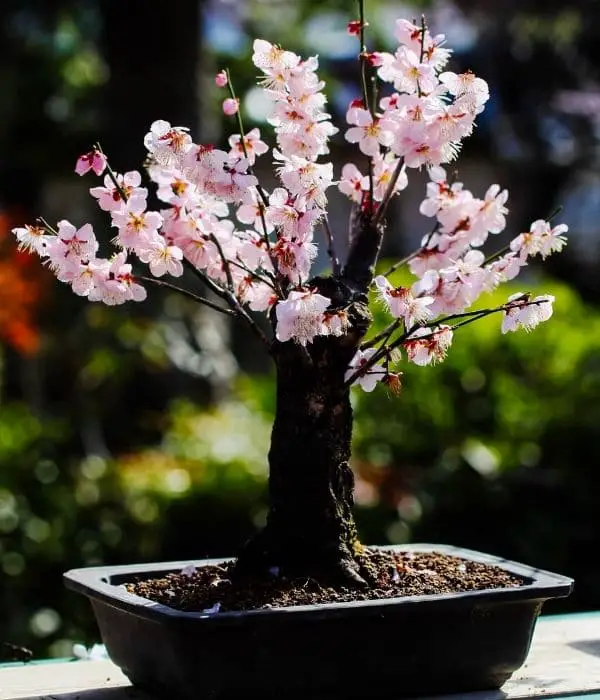
The Cherry Blossom bonsai trees are widely beloved throughout Japan as they are the national flower of the country and are considered sacred within their culture. The brief bloom of the delicate pink flowers is said to represent the present moment and the focus of living life in the here and now.
Symbolized by the strength and resilience of feminine energy, the Cherry blossom bonsai is the renewal of new birth and the strength of fertility.
Juniper
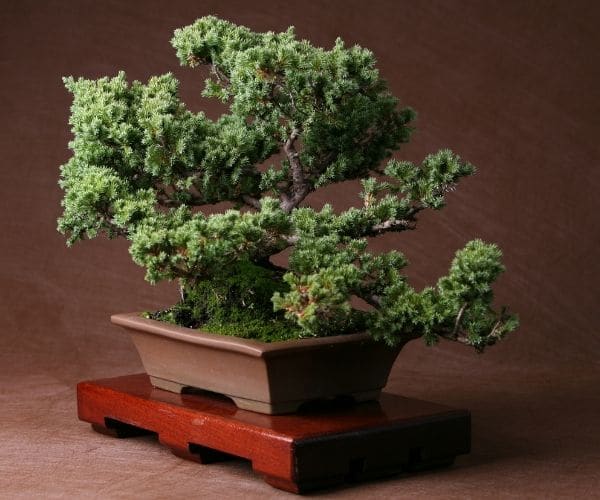
The Juniper tree represents protection, purification, and power. As an evergreen tree, it grows strong despite natural challenges, and it is, therefore, a symbol of great strength.
It can also protect us and our spaces from evil spirits, as well as purify our hearts and minds. The Juniper bonsai is a wonderful gift for a new home or space that needs cleansing, as well as for anyone needing extra strength and protection.
Oak
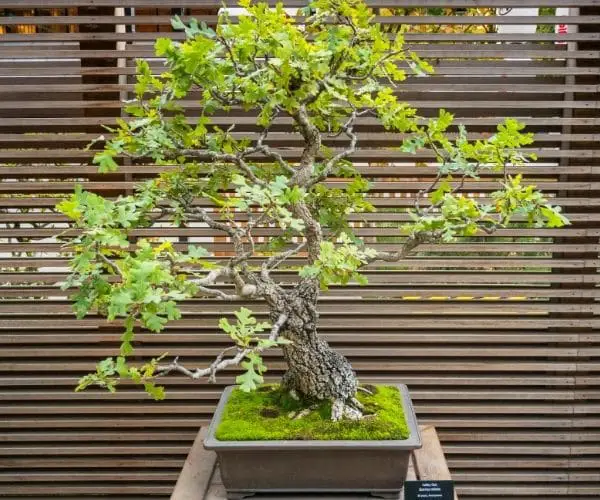
Often referred to as the tree of the gods, oak trees are known throughout Asian cultures and around the world as powerful, long-lasting trees.
The oak is often represented by power due to its strength in its trunk and large branches, and its longevity has made it a symbol of everlasting life and eternal wisdom.
Oaks are a wonderful choice for a first-time bonsai lover as they can withstand a significant amount of pruning.
Japanese Maple
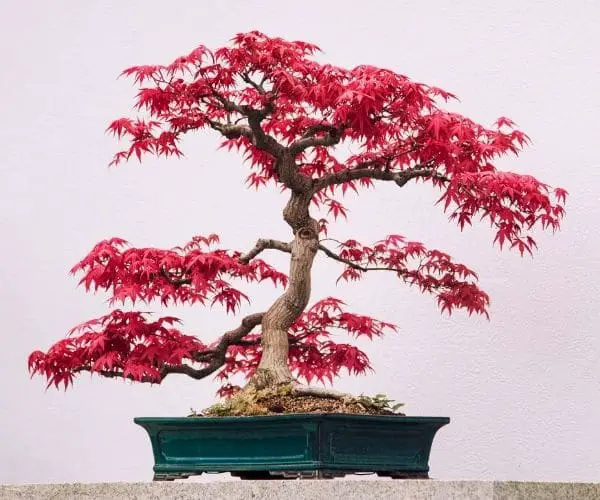
If you are looking for your bonsai tree to bring peace, tranquility, and balance into your life, the maple is a perfect choice.
It’s no surprise that with its beautiful red and orange-tinted leaves, it is widely believed to represent beauty itself.
In Japanese culture, the maple tree is often sung or written about in a variety of songs and literature as a symbol of pure peace and balance within.
Boxwood
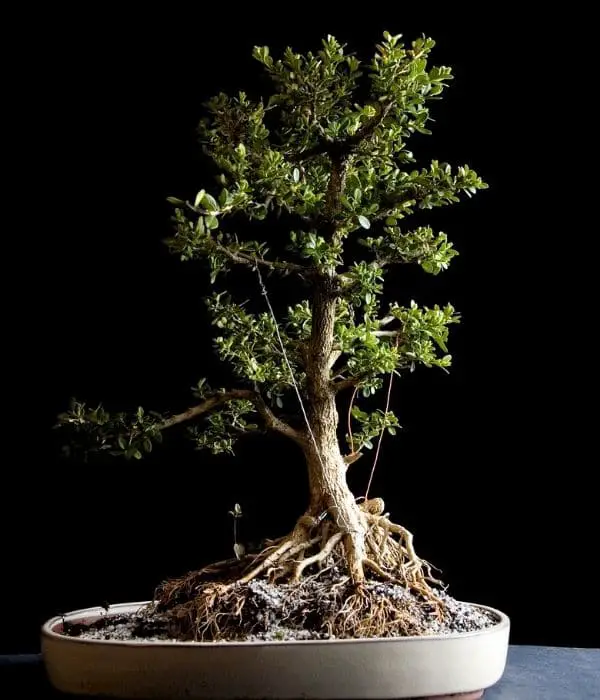
Boxwood bonsais are fairly common and are easy to grow and care for as they are of the evergreen family and are extremely resilient.
This exact characteristic is what makes the boxwood tree so symbolic of immortality. It can bring long and healthy life to those who decide to love and cultivate a boxwood bonsai.
Are Bonsai Trees Truly Healing?
Whether or not you believe that the symbolism of bonsai trees can significantly affect your life, the truth is that these trees do have true medicinal and healing powers.
As we have learned, each species of bonsai has a specific offering that can help you maintain good physical health, but studies show that all house and garden plants can actually make you healthier and happier!
So yes, bonsai trees are spiritually important and represent many esoteric qualities, but they have proven to be healing for the body, mind, and soul.
Final Thoughts
When asking ourselves what bonsai trees represent, it is not simply a one-word answer. If you asked the same question to a Buddhist monk who has dedicated his life to the artistry of caring for bonsai trees, he may not even be able to put it into words.
We can understand that they are meant to bring peace, tranquility, balance, love, longevity, luck, gratitude, friendship, and oh so much more into our lives, as well as keeping our lungs happy and healthy and our minds clear and focused.
The good news is, you do not have to be a traditional bonsai artist to love these magical plants! The philosophical and spiritual aspects of these beautiful trees can be appreciated by everyone.
Maybe it’s simply a feeling you have when you spend time around a bonsai, or maybe you feel a connection you can’t quite explain to one of the many varieties. You might feel like the mind becomes calm, your heart more full, or even your relationships flourish in the presence of a well cared for bonsai.
Remember that bonsais are incredibly special and spiritually charged, make sure to take good care of yours to reap all of its wonderful benefits.
